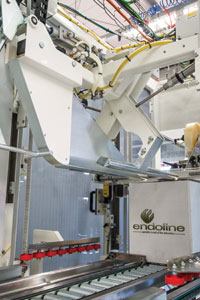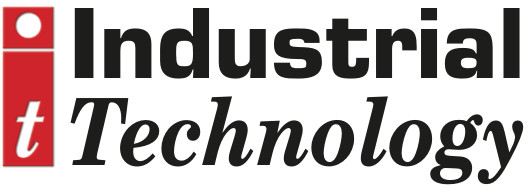
Posted to News on 26th Jun 2017, 00:00
The future of end of line machinery
The Internet of Things, Industry 4.0 or simply smart manufacturing; whichever way it’s phrased there is little doubt about the impact that the fourth industrial revolution will have on our manufacturing landscape. We look at the impact on the design of end of line machinery.

Although the integration of automation has increased significantly, reports suggest that just 8% of UK manufacturers have a significant knowledge of Industry 4.0. While this flags a gaping hole in the understanding and opportunities this forthcoming revolution will bring, many manufacturers, according to Endoline Machinery, have been adapting to Industry 4.0 over the years through the installation of intelligent end of line systems which are boosting their productivity and efficiency.
Endoline, one of the UK’s leading end of line systems manufacturers, has been engineering machinery for years which have feature sets identified as key components of Industry 4.0. “From a manufacturer’s perspective, Industry 4.0 may seem revolutionary and something that only larger companies will ultimately adopt,” comments Keith Habben, engineering manager at Endoline Machinery. “However, over several years there has been a general shift in the adoption of highly intelligent, Industry 4.0 compatible, end of line machinery.”
This gradual implementation has largely been down to demands from manufacturers for increasingly high spec systems which will satisfy the evolving needs of retailers and consumers.
As the requirement for higher speed, random sized cases has risen, so too have the technical abilities of end of line systems, including the incorporation of data reading barcode systems, taking away the need for manual adjustment. “Our automated, end of line solutions are designed to accommodate speeds of up to 30 cases per minute whilst adapting to a multitude of differing case sizes as efficiently as possible,” adds Habben.
Efficiency and minimising downtime are key areas driving the intelligence of end of line systems. While UK manufacturers have made considerable leaps over recent years to automate their production facilities, there is now a greater emphasis on linking these systems together. Endoline has witnessed an overall increase in demand to integrate systems directly into customers own specific data networks. Consequently they can capture, process and analyse the big data from the factory floor remotely, and it can be used to improve productivity, avoid downtime through predictive maintenance, upload new case recipes and optimise energy use.
Companies are looking beyond the functionality of what their capital equipment can provide, and machinery is now an integral part of the management of the whole production life cycle, providing the business with everything they need.
Habben comments: “Our customers’ requirements are many and variable in complexity, but all require us to provide a fit for purpose solution which enables them to leverage as much information as they need from their investment.
“Many of our machines are seamlessly integrated into fully automated, complex, production lines that may include robotics, conveying systems with multi-gate and divert control, automated printing, scanning and palletising features.”
The ability to provide a connected smart factory is crucial in the shift to Industry 4.0. While the sensors and data used to link these technologies together are not new, as intelligence grows along with greater awareness of what a smart factory can offer, the full potential will be realised.
“Our strength is in our appreciation of the customer’s requirement’s and our ability to deliver strong engineering solutions that add value by embracing the Industry 4.0 ideology to provide smart machines to smart factories,” Habben concludes.








